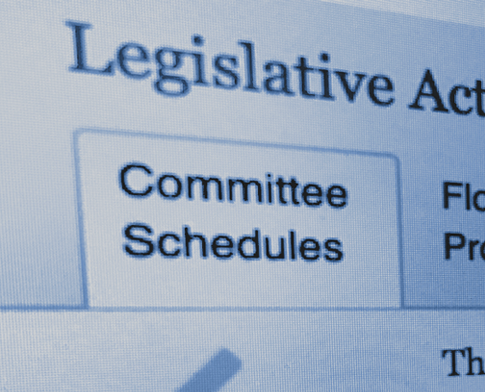Trade Update (January 14)
Senate Finance Passes USMCA
On Tuesday (Jan. 7), the Senate Finance Committee approved the United States-Mexico-Canada Agreement (USMCA) by a vote of 25-3. The move clears the way for a full Senate vote, although several other Senate committees will vote on it next week. Finance Chairman Chuck Grassley (R-IA) said USMCA’s road to the Senate “tested his patience at times” but ultimately said it’s a win for farmers, businesses, and workers. While the deal is likely to pass with overwhelming bipartisan support, Finance members Pat Toomey (R-PA), Sheldon Whitehouse (D-RI), and Bill Cassidy (R-LA) voted against the bill. Toomey, who’s been one of USMCA’s most vocal critics, said some provisions could serve to deter investment and trade through a measures to “sunset” the deal after 16 years, weaken protections for U.S. investors, and apply new supply chain requirements. “It’s the first time we’re ever going to go backwards in a trade agreement,” Toomey said. He also argued that the deal should be considered under regular Senate procedures, asserting that it does not comply with a fast-track process that prevents lawmakers from offering amendments to the implementing bill.[1] While Finance is typically the only committee to vote on trade deals, Senate parliamentarian cited the Trade Act of 1974 as reason for other committees to vote on the deal. The Budget Committee and Environmental and Public Works (EPW) Committee will both vote on Tuesday (Jan. 14), while the Commerce Committee and Health, Education, Labor and Pension (HELP) Committee will both take up the bill on Wednesday (Jan. 15). Grassley expects the committees to conclude their work in just a few days. Lawmakers can’t amend the trade deal under a fast-track process established under Trade Promotion Authority (TPA) legislation. Under the expedited procedures, the full Senate must take up the USMCA implementing legislation within 15 days of committee approval. Grassley said there’s “no problem” in terms of the Senate running out of time to consider the bill under TPA procedures. The Senate committees, however, have a maximum of 15 session days to consider the House bill from when it was sent over on Jan. 3 before it’s automatically discharged to the Senate floor. Once on the floor, the Senate is allowed another 15 session days to hold a full vote on the bill. The bill is limited to 20 hours of debate.[2] Senate Majority Leader Mitch McConnell (R-KY) said he would not take up USMCA until after the impeachment trial. House Speaker Nancy Pelosi (D-CA) indicated on Friday (Jan. 10) she would send the articles to the Senate sometime next week.
U.S., China ‘Phase One’ Signing Next Week
China’s top trade official, Vice Premier Liu He, will arrive in Washington on Monday (Jan. 13) to sign “Phase One” of the trade deal between the U.S. and China. Chief White House Economic Adviser Larry Kudlow told Bloomberg TV that any “Phase Two” discussions could extend past the 2020 presedential election. Kudlow said that measures implicated in “Phase Two” will largely be dependent upon the execution of “Phase One.” “But in terms of a timetable,” Kudlow continued, “the president, I believe yesterday, said he was in no rush. It might take the rest of the year. It could happen after the election.” The Trump administration says China will commit to purchasing $200 billion of manufacturing goods, agriculture products, services, and energy over the next two years as part of “Phase One.” A text of the “Phase One” deal has been released yet.
EU Commissioner Arrives in Washington Next Week
European Union (EU) Trade Commissioner Phil Hogan will meet with U.S. Trade Representative (USTR) Robert Lighthizer next week to discuss a series of trade issues between the U.S. and the governing body. In addition to his comments on China, Kudlow told Bloomberg TV that President Trump has no immediate plans to impose tariffs on auto imports from Europe, although the possibility still exists. President Trump has repeatedly threatened to impose duties of 20 or 25 percent under Section 232 of the Trade Expansion Act of 1962, which gives the executive broad authority to implement tariffs for national security purposes. In late December 2019, Hogan said he’d seek a “reset” on trade relations between the U.S. and EU after a series of tense exchanges between the two bodies. The U.S. imposed steel and aluminum tariffs on EU imports in May 2018 and duties on $7.5 billion of aircraft and consumer goods on EU imports stemming from the Large Civil Aircraft dispute in October 2019. “We agreed to meet in Washington in mid-January to discuss the long list of issues causing strain in the relationship between the EU and the US. There is no point in getting into the details of resolving trade irritants unless we agree a line on a common trade agenda,” Hogan said in December. “I will be seeking a reset of the EU/US trade relationship on issues like tariffs on steel and aluminum and the threat of US tariffs in response to a digital tax in Europe,” Hogan added.
AD, CVD Investigations: Forged Steel Fluid End Blocks
The Commerce Department announced the initiation of new anti dumping duty (AD) and countervailing duty (CVD) investigations to determine whether forged steel fluid end blocks from Germany, India, and Italy are being dumped in the U.S. Additionally, the investigations seek to find if producers in China, Germany, India, and Italy are receiving unfair subsidies. The alleged dumping margins are 83.37 percent for Germany, 198.85 percent for India, and 87.04 percent for Italy. To read the press release in its entirety, click here.
AD, CVD Determinations: Asian Steel
On Friday (Jan. 10), Commerce also announced five affirmative final AD and CVD determinations involving steel products that are produced in Korea and Taiwan, shipped to Vietnam for minor processing, and then exported to the U.S. as corrosion-resistant steel products (CORE) and cold-rolled steel (CRS) – in circumvention of existing orders. According to the press release, Commerce will instruct U.S. Customs and Border Protection to continue to collect AD and CVD cash deposits on imports of CORE and CRS produced in Vietnam using Korean- or Taiwanese-origin substrate. These duties apply to any unliquidated entries since August 2, 2018, the date on which Commerce initiated these circumvention inquiries. The release also stated that the applicable cash deposit rates will be as high as 456.23 percent, depending on the origin of the substrate and the type of steel products exported to the U.S. To read the press release in its entirety, click here.
References
[1] Behsudi, Adam. Rodriguez, Sabrina. “Senate panel advances Trump’s USMCA to final congressional vote.” Politico Pro. 7 Jan. 2020. https://subscriber.politicopro.com/article/2020/01/senate-panel-advances-trumps-usmca-to-final-congressional-vote-1857291
[2] Behsudi, Adam. “Grassley: Senate won’t ‘dilly-dally’ on USMCA as impeachment lingers.” Politico Pro. 9 Jan. 2020. https://subscriber.politicopro.com/article/2020/01/grassley-senate-wont-dilly-dally-on-usmca-as-impeachment-lingers-3975511
HOUSE.GOV
The Week Ahead
For the main events of the next week and more, go straight to the key events on the house.gov website.
SENATE.GOV
The Week Ahead
For the main events of the next week and more, go straight to the key events on the senate.gov website.


